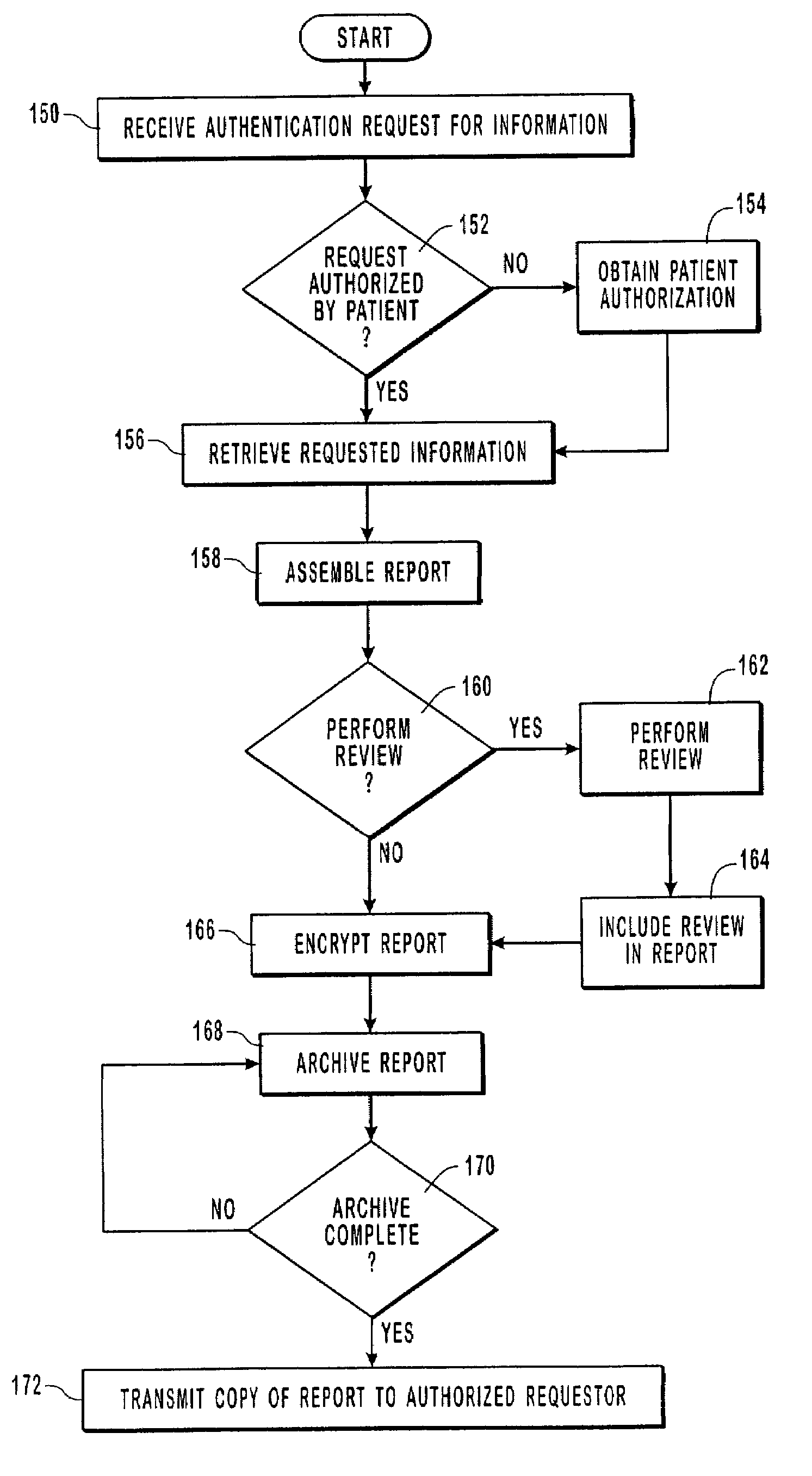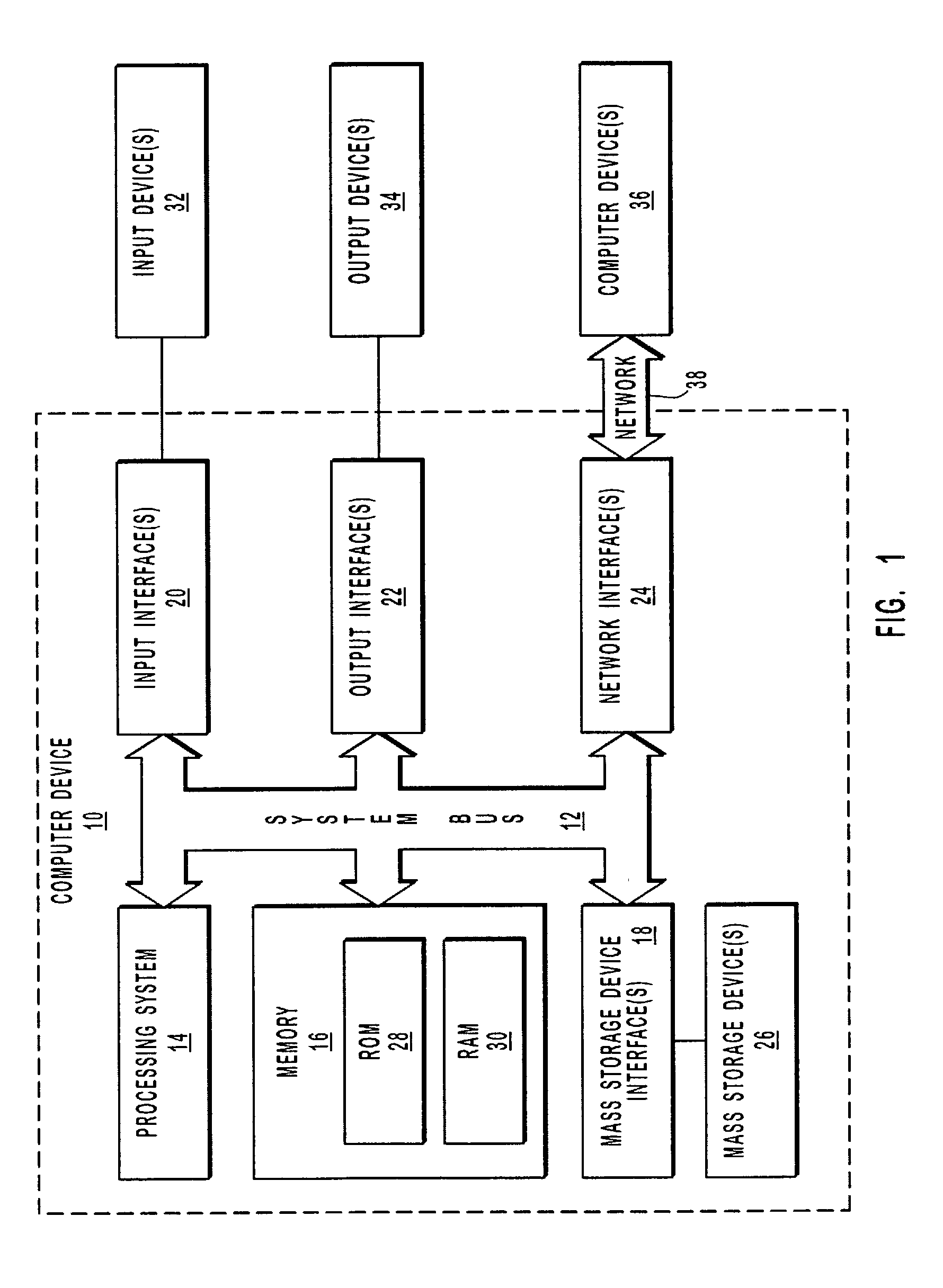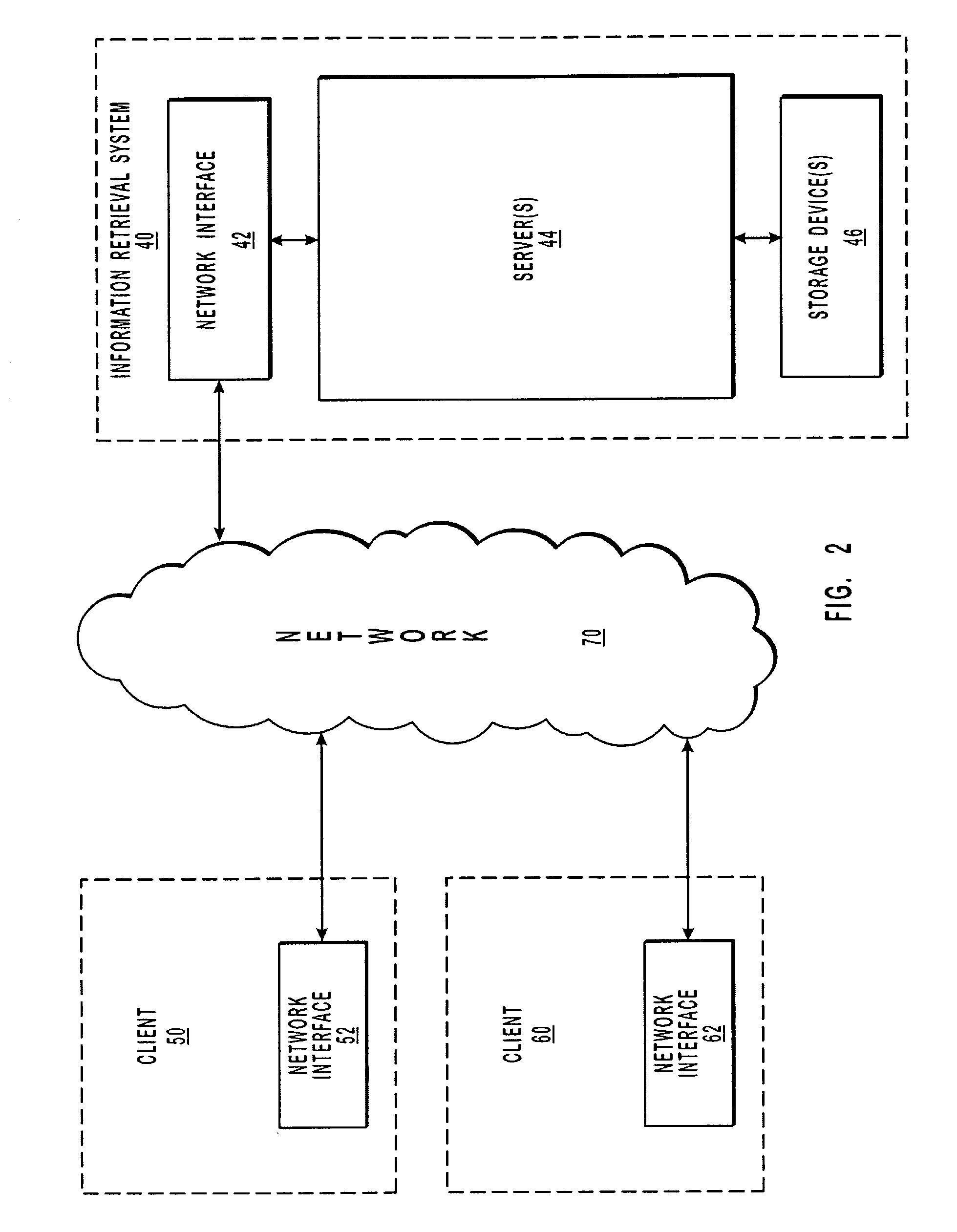Managing data in compliance with regulated privacy, security, and electronic transaction standards
a technology of data management and privacy, applied in the field of information management, can solve the problems of restricting the sharing of information, not easy to access, and general availability of medical records, and achieve the effect of preserving professional confiden
- Summary
- Abstract
- Description
- Claims
- Application Information
AI Technical Summary
Benefits of technology
Problems solved by technology
Method used
Image
Examples
Embodiment Construction
[0028]The present invention relates to information management. In particular, the present invention relates to systems and methods for managing data in compliance with regulated privacy, security, and electronic transaction standards.
[0029]Embodiments of the present invention take place in association with one or more computer devices that are used in a system to manage data in compliance with regulated privacy, security, and electronic transaction standards. In one embodiment, the system includes a single point of entry for external and / or internal requests, and / or a single point of exit for transmissions of information, wherein the transmissions include individually identifiable patient information to legitimate patient-approved requests. Furthermore, embodiments of the present invention embrace fully digital authorizations and consents for retrieval from external data sources.
[0030]Embodiments of the present invention also embrace the de-identification of information that may be ...
PUM
 Login to View More
Login to View More Abstract
Description
Claims
Application Information
 Login to View More
Login to View More - R&D
- Intellectual Property
- Life Sciences
- Materials
- Tech Scout
- Unparalleled Data Quality
- Higher Quality Content
- 60% Fewer Hallucinations
Browse by: Latest US Patents, China's latest patents, Technical Efficacy Thesaurus, Application Domain, Technology Topic, Popular Technical Reports.
© 2025 PatSnap. All rights reserved.Legal|Privacy policy|Modern Slavery Act Transparency Statement|Sitemap|About US| Contact US: help@patsnap.com



